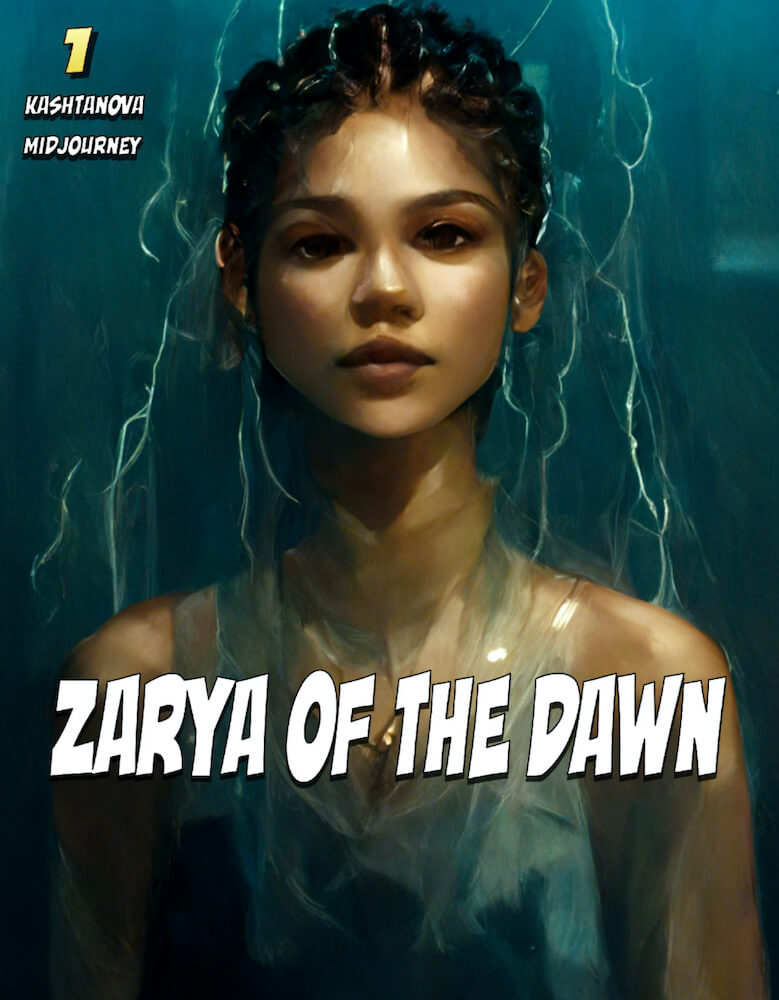The US Copyright Office issued a landmark ruling in February that users of AI-generative programs may not apply for copyright registration of the resultant images. Additionally, the company that owns the AI-image-generative program Midjourney was sued in federal court for copyright infringement by several artists. The complainants’ lawyer released a statement labeling AI programs as “parasites.”
The ruling made it clear that copyright law mandates “human authorship” for registration of images. Graphic novelist Kris Kashtanova wrote a comic book, Zarya of the Dawn, illustrating it primarily with panels created by using Midjourney. The Office ruled that an applicant for such registration is under a duty to disclose which images in a book or compilation were created using AI: “Because the current registration for the Work does not disclaim its Midjourney-generated content, we intend to cancel the original certificate issued to Ms. Kashtanova and issue a new one covering only the expressive material that she created”—such as text written by her and any graphic panels she created independently.
The Office examined the Midjourney-image-generation process in detail, including how the program refines images from background static or noise based on prompts by the operator, and determined that “the process is not controlled by the user because it is not possible to predict what Midjourney will create ahead of time.”
“To obtain the final image, [Ms. Kashtanova] describes a process of trial and error, in which she provided hundreds or thousands of descriptive prompts to Midjourney until the hundreds of iterations [created] as perfect a rendition of her vision as possible.” The Office rejected her explanation: “Rather than a tool that Ms. Kashtanova controlled and guided to reach her desired image, Midjourney
generates images in an unpredictable way. Accordingly, Midjourney users are not the ‘authors’ for copyright purposes of the images the technology generates ….Because of the significant distance between what a user may direct Midjourney to create and the visual material Midjourney actually produces, Midjourney users lack sufficient control over generated images to be treated as the ‘master mind’ behind them.”
The decision rebuffed Kashtanova’s claim that she relied on “hundreds” of prompts that required creativity and put her in control of the process. “Because Midjourney starts with randomly generated noise that evolves into a final image, there is no guarantee that a particular prompt will generate any particular visual output. Instead, prompts function closer to suggestions than orders ….”
In a Statement of Policy in March’s Federal Register, summarizing its rulings, The Office said it was getting numerous applications for registrations of AI-generated material. “[The] Office concludes that public guidance is needed on the registration of works containing AI-generated content.”
The Office states that it “intends to publish a notice of inquiry later this year seeking public input regarding policy topics, including how the law should apply to the use of copyrighted works in AI training and the resulting treatment of outputs.”
The proposed “inquiry” addresses an issue not touched upon in the Kashtanova decision. Midjourney and other AI-image-generating programs are “trained” using millions of images—many under copyright—scraped from the internet.
That controversial aspect of generative AI is now being litigated in two blockbuster lawsuits filed in January against Stability AI, owner of the Stable Diffusion program. First, Getty Images (which controls the rights to millions of images) filed a copyright infringement lawsuit in federal court against Stability AI. Second, a class action suit filed in California federal court on behalf of artists claims that Stability AI and Midjourney infringed on their copyrights. One of the lawyers representing the three lead plaintiffs said an AI-image-generating program is “a parasite that, if allowed to proliferate, will cause irreparable harm to artists, now and in the future… and will inflict permanent damage on the market for art and artists.”
These are welcome developments in the battle against the onslaught of the AI juggernaut. If copyright is to mean anything, it should protect artists’ original creations from being scraped and stolen off the Internet. AI programs use devious methods for creating “art,” and the users of these programs are not legitimately “artists.”
